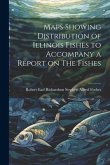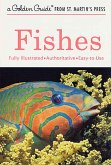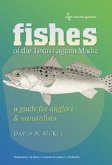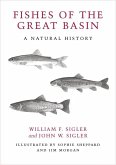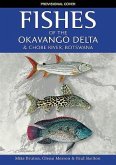Illinois bodies of water are home to a diverse population of fishes, from the silverjaw minnows that inhabit the shallow, sandy bottoms of eastern Illinois streams to the freckled madtom catfish that are particular to the Kaskaskia River or the banded pygmy sunfish that prefer swampy sloughs in the state's southernmost region. This comprehensive volume, now available for the first time in paperback, is considered the definitive reference work on the state's 199 species of fishes. Supplementing the information compiled in Stephen A. Forbes and Robert E. Richardson's 1908 treatise on Illinois fishes, Philip W. Smith's The Fishes of Illinois includes variation analyses, distribution and ecological data summaries, and a glossary of scientific terms. Smith also notes which species have been wiped out, which have been threatened as a result of water quality issues and habitat changes, and which of the non-native species introduced in Illinois have thrived. The Fishes of Illinois devotes a full chapter to each of the state's twenty-eight families of fishes, identifying each family's common and scientific name and detailing its evolutionary relationships and economic importance. Within the family classifications, genera are defined by common physical traits and geographical distribution. Next, each species of fish -- also identified by common and scientific names -- is discussed in terms of its physiology, variations and subspecies, ecological standing, and abundance. Each species listing is supplemented by a map that indicates the distribution of the species before 1908 by one symbol and modern-day distribution by another.
Hinweis: Dieser Artikel kann nur an eine deutsche Lieferadresse ausgeliefert werden.
Hinweis: Dieser Artikel kann nur an eine deutsche Lieferadresse ausgeliefert werden.


